Elena & Fabrice's Web
This wikilog article is a draft, it was not published yet.
Julia programming
m |
m |
||
| Line 24: | Line 24: | ||
<center><wz tip="A stable 2-cells pattern that survives in the g>a configuration by locking two neighbours with a period a+b=30.">[[File:stable-2cells-pattern.gif|400px]]</wz></center> | <center><wz tip="A stable 2-cells pattern that survives in the g>a configuration by locking two neighbours with a period a+b=30.">[[File:stable-2cells-pattern.gif|400px]]</wz></center> | ||
| + | It is interesting as well to change parameters during the simulation. This locks the patterns into some correlated sequences which give rise to cycles of evolution stationary in space alternating with time. | ||
| + | |||
| + | and coming back to <tt>a=20</tt> and cycling over: | ||
{{WLP6}} | {{WLP6}} | ||
Revision as of 20:34, 15 March 2021
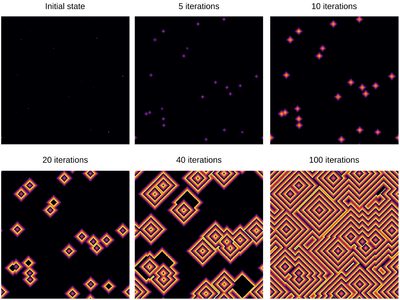
Here is the same but animated:
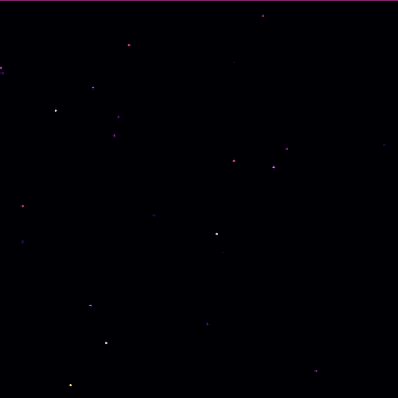
Playing with the parameter space:
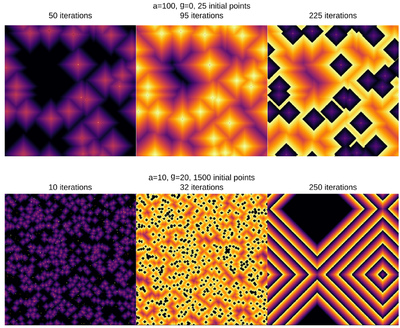
And the bottom case, animated:
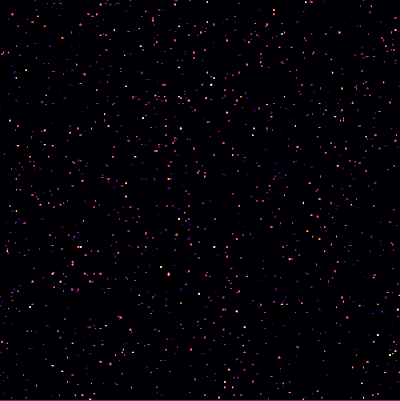
It is interesting to focus on the surviving spot. We can zoom on this area and see what is going on there. The cells have locked into this stable pattern, involving, apparently, two cells only:
excited = @animate for i ∈ 1:30 excite() plotspace(145, 220, 225, 300) end
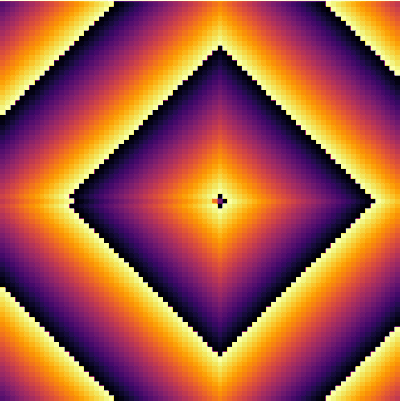
It is interesting as well to change parameters during the simulation. This locks the patterns into some correlated sequences which give rise to cycles of evolution stationary in space alternating with time.
and coming back to a=20 and cycling over: